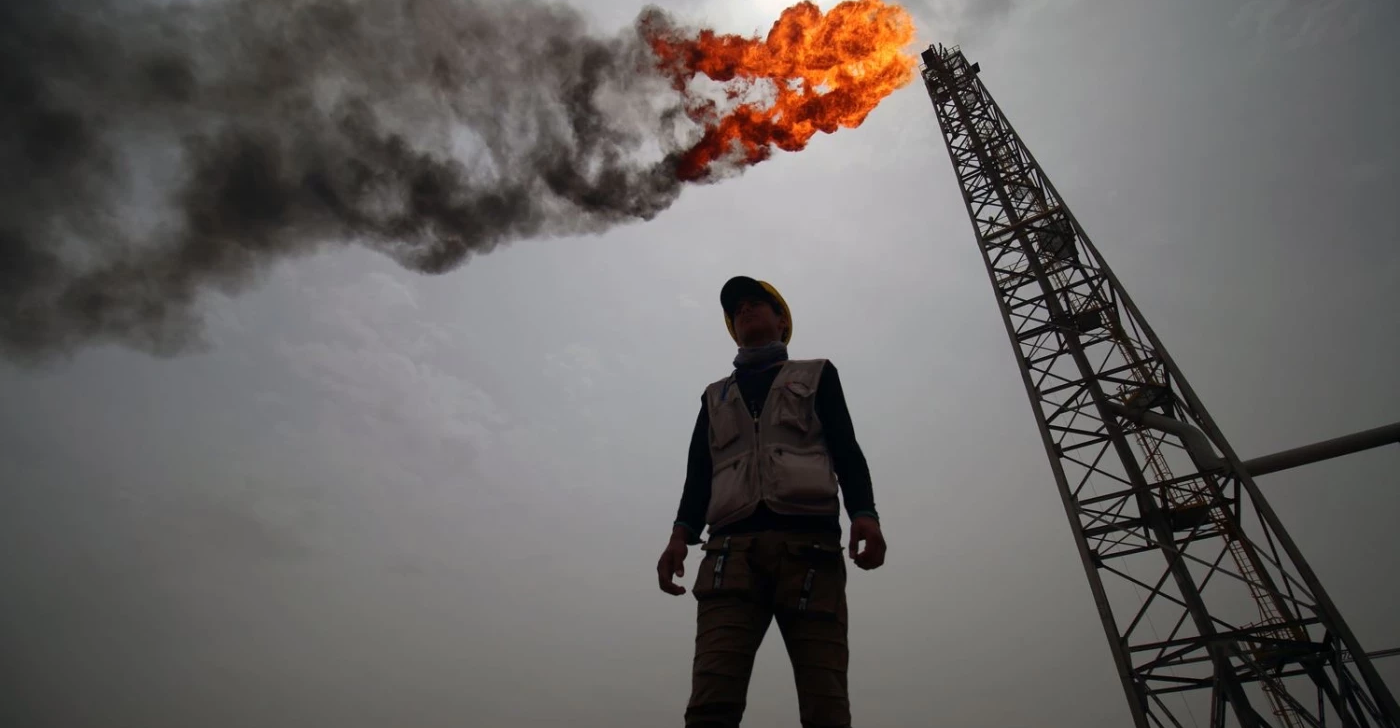Trump gives Baghdad a choice: Export Kurdistan’s oil or face sanctions like Iran
Trump gives Baghdad a choice: Export Kurdistan’s oil or face sanctions like Iran
2025-02-21 06:53
 Shafaq News/ Reuters revealed, on Friday, details of US pressure exerted by the administration of President Donald Trump on the Iraqi government, in order to expedite the resumption of the export of oil from the Kurdistan Region via the Turkish Ceyhan pipeline, or face economic sanctions as is happening with Iran.
Shafaq News/ Reuters revealed, on Friday, details of US pressure exerted by the administration of President Donald Trump on the Iraqi government, in order to expedite the resumption of the export of oil from the Kurdistan Region via the Turkish Ceyhan pipeline, or face economic sanctions as is happening with Iran.
Reuters quoted eight sources in Baghdad, Washington and Erbil, who have direct knowledge of the issue, as saying that “increasing pressure from the new US administration was a major driver behind the Iraqi oil minister’s announcement last Monday that exports from the region would resume next week.”
A quick resumption of exports from Iraq’s semi-autonomous Kurdistan Region would help offset a potential drop in Iranian oil exports, which Washington has pledged to cut to zero as part of Trump’s “maximum pressure” campaign against Tehran.
The oil flow would mark the end of a nearly two-year conflict that has cut off more than 300,000 barrels per day of the region’s oil flowing through Türkiye to global markets.
Iran sees its neighbor and ally Iraq as vital to keeping its economy afloat amid sanctions. But Baghdad, a partner of both the United States and Iran, is wary of falling into the crosshairs of Trump’s policy of pressuring Tehran, the sources said.
Trump wants Iraqi Prime Minister Mohammed Shia al-Sudani to cut economic and military ties with Iran. Last week, Reuters reported that Iraq’s central bank had blocked five more private banks from accessing dollars at the request of the U.S. Treasury.
Iraq’s announcement on resuming exports was hasty and lacked details on how to address technical issues that need to be resolved before flows can restart, four of the eight sources said.
Iran wields significant military, political and economic influence in Iraq through its powerful Shiite militias and the political parties it backs in Baghdad. But the increased U.S. pressure comes at a time when Iran has been weakened by Israeli attacks on its regional proxies.
With the pipeline carrying crude oil from Kurdistan to the Turkish port of Ceyhan closed since 2023, Kurdish oil smuggling to Iran by truck has flourished. Six of the eight sources said the United States is urging Baghdad to curb the flow.
“Washington is pressuring Baghdad to ensure that crude oil from the region is exported to global markets via Turkey rather than sold cheaply to Iran,” said an Iraqi oil official familiar with the crude trucking shipments crossing to Iran.
While the closure of the Turkish pipeline has led to a surge in Kurdish oil smuggling through Iran, a larger network that some experts believe generates at least $1 billion a year for Iran and its proxies has flourished in Iraq since al-Sudani took office in 2022, Reuters reported last year.
In this regard, two US administration officials confirmed that the United States had asked the Iraqi government to resume the region’s exports, one of whom said that this step would help ease the upward pressure on oil prices.
Asked about the administration’s pressure on Iraq to open up Kurdistan Region oil exports, a White House official said: “It is not only important for regional security to allow our Kurdish partners to export their oil, but it also helps keep the price of gas down.”
Resuming regional oil exports would help offset some of the global supply losses from lower Iranian exports, but would cover only a fraction of the more than 2 million barrels per day of crude and fuel that Iran ships. However, Iran has proven adept in the past at finding ways to circumvent U.S. sanctions on its oil sales.
While Türkiye halted the pipeline in March 2023 after the International Chamber of Commerce ordered Ankara to pay $1.5 billion to Baghdad in compensation for unauthorized exports between 2014 and 2018.
The sources told Reuters that there were still unresolved issues around payment, pricing and maintenance. Two days of talks in the city of Erbil this week failed to reach an agreement, the sources said.
An informed source on the issue said that the federal government wanted to restart exports without making commitments to the Kurdistan Regional Government regarding payments and without clarifying the payment mechanism.
The restart could also cause problems for OPEC+, or the Organization of the Petroleum Exporting Countries plus Russia and other allies, as Iraq is under pressure to comply with its pledge to cut output. Additional supplies from the Kurdistan region of Iraq could put it above the OPEC+ supply target.
An Iraqi official concluded by saying: “It is possible for Iraq to restart the pipeline and remain compliant with the OPEC+ supply policy.”
shafaq.com
